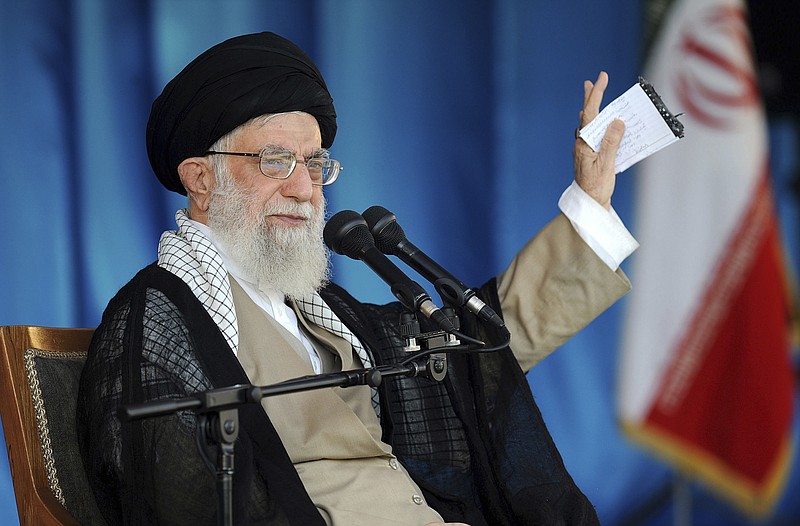WASHINGTON - President Trump seems convinced that he has found the formula for success in foreign policy: Bully your adversaries, sanction them, squeeze them - and then flatter them and make a deal.
Trump followed this approach with North Korea and he got a showy summit meeting in Singapore in June with Kim Jong Un and a pledge (encouraging but so far undelivered) for denuclearization. He adopted the hard-talk/sweet-talk tactics with Mexico and, eventually, after a long pout, with Canada, and he got a trade deal that's a modest but real improvement over NAFTA.
China is now in the wrestling ring with Trump, and for Beijing, it must be a bewildering contest. One minute, Trump is hitting the Chinese with stiff tariffs; the next he is saying what a great friend he has in President Xi Jinping.
These crude tactics are so obvious that, on one level, it's astonishing that Trump gets away with them. Trump's success shows that bullying can work, at least in the short run, so long as the bully is a lot bigger and stronger than those he taunts.
The next adversary is Iran, and this could be the most interesting bout yet. Trump was telegraphing his punches at the United Nations, in a series of public and private comments. Simply put, the plan is to strangle the Iranian economy to the point that Tehran cries "Uncle!" (or maybe, "Uncle Sam!") and then negotiate the bigger, better deal on nuclear and regional issues.
Trump launched his pirate ship/love boat toward Iran on Sept. 25 in New York: "We are doing many things right now, including sanctions, at a very massive level. Iran has to change its tune before I meet with them. They want to meet. I'm not meeting with them until they change their tune. It will happen. I believe they have no choice."
In a tweet, he began stroking President Hassan Rouhani, with a bit of insincere flattery that would make even a Persian blush: "I am sure he is an absolutely lovely man."
The make-them-suffer part of the strategy begins in earnest next month, as the U.S. applies harsh sanctions to Iran. Most big European companies have indicated that they will comply with U.S. sanctions, rather than endanger their access to the American market. That includes big French companies like oil giant Total and automaker Peugeot, which have big investments in Iran.
As the U.S. squeezes Iran economically, it's also getting tougher in regional proxy fights. After waffling for more than a year, the administration has decided to keep a small, highly effective team of special operations forces in northeast Syria, to stabilize that part of the country and block Iranian advances. In Iraq, where the U.S. and Iran jockey side-by-side for influence, the just-designated government headed by President Barham Salih and Prime Minister Adel Abdul-Mahdi appears to tilt West.
A senior U.S. official tells me that the new Iraqi government is a big setback for Maj. Gen. Qassem Soleimani, the head of Iran's Quds Force: "Soleimani is losing his grip on Iraq. For the last five months, he has spent tens of millions of dollars, sparked protests in Basra, organized demonstrations in Baghdad against American diplomats, and launched rockets at our facilities. His aim was to install anti-American candidates in top leadership positions. It didn't work."
Trump seems to think he has the power-diplomacy game figured out, and he has undeniably achieved some gains. But as financial managers warn: Past results are no guarantee of future performance. Iranians want to escape their isolation, but it's hard to imagine Supreme Leader Ali Khamenei succumbing to Trump's punch-them/hug-them strategy and doing a deal.
America's squeeze play will probably devastate the Iranian economy. The question is whether this upheaval will produce compromise and a breakthrough deal, or another failed state in the Middle East. Hope for the former, but prepare for the latter.
Washington Post Writers Group
